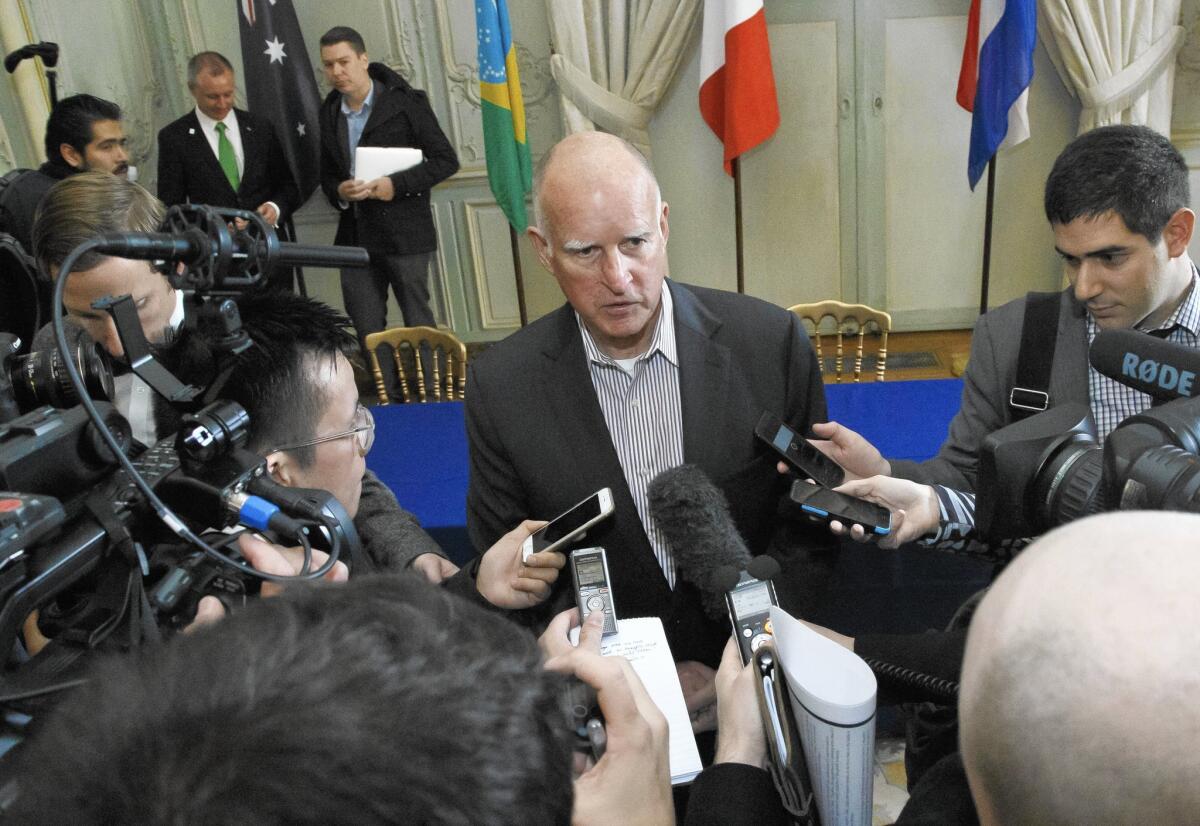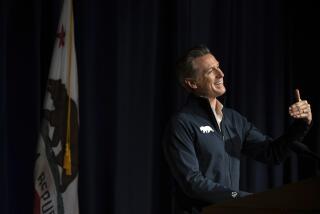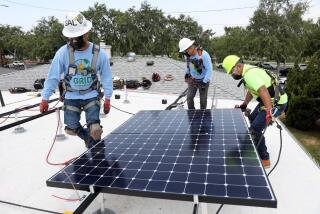Capitol Journal: There’s plenty at home for Brown’s to-do list

Gov. Jerry Brown at the U.N. Climate Change Conference on Dec. 6 in Paris. Decisions on state issues on health, roads and schools are pushed into the new year.
Back from Paris and planet-saving, Gov. Jerry Brown presumably has returned to his day job. Let’s hope.
Don’t read this wrong. Slowing global warming is noble and necessary. California can help show how it’s done and be a role model, even if the state does emit only 1% of the world’s greenhouse gases.
Brown needed to attend the United Nations summit, because if for no other reason, global warming is his obsession. In fact, Brown always has been fixated on what he used to call “Spaceship Earth.”
But there are plenty of things that need saving at home. And California’s governor has more power than anyone to do it.
Mundane things like California’s pot-holed roads.
Also:
•Our Medi-Cal healthcare system for the poor that soon will lose a big chunk of money.
•An underfunded program that serves the developmentally disabled.
•School construction and modernization, a program that has run out of state money.
Whether Brown has lost interest in these issues — or really ever had much — is debatable. But they’ve been high on the Capitol agenda all year with essentially no progress being made.
These nagging problems will be carried over into 2016. They will undoubtedly be brought up again when the Legislature reconvenes Jan. 4 and the governor unveils his proposed new budget a few days later.
“If chatter could be counted as progress, then I’d say we’ve come a long way,” says Jim Earp, who heads a coalition called California Alliance for Jobs that has been pushing for new highway funding. “But I’ve never worked on anything where I’ve seen so little progress.”
One guy who has been trying to raise money for road repairs is Senate transportation committee Chairman Jim Beall (D-San Jose).
“He’s been in Paris,” Beall says of Brown. “I’ve been in Turlock, Bakersfield and Chico talking to people [about a solution]. We need the governor’s help.”
The funding shortage is because the gas tax hasn’t been raised since 1994 and inflation has eroded its buying power. Moreover, motorists are buying less gas because cars are more fuel efficient. But these vehicles still pound the pavement, doing damage.
The Brown administration estimates there’s a $137-billion backlog in needed repairs for state and local roads. A year ago, the governor said that $5.7 billion more was needed annually.
Later, he proposed a $3.6-billion package that would cost average motorists $84 extra a year, including a 6-cent gas tax increase.
But he never expressed any real urgency and didn’t push. “The roads are going to get fixed,” he told reporters in September. “Whether it takes a week, a month, a year or two, ultimately the powers that be [are] going to up the pressure. It’s just a question of when.”
There’s no greater power on this, however, than the governor.
He may have mixed feelings about petroleum-dependent, greenhouse gas-emitting traffic anyway. And he has always tended to look down at the way most mortals live.
In Paris, Times reporter Chris Megerian wrote that Brown called on people “to live lighter on the planet. Friendship, beauty, art has to take the place of this heavy commodification of our entire existence.”
“We’re talking about a different kind of life,” the governor continued. “A life not based on oil, and a life not based on so much emphasis on the individual as opposed to the common good.”
OK, but most people still have to drive to work. And in the Los Angeles Basin, they crawl through the second-most-congested traffic in the country. The San Francisco Bay Area is the third worst. No. 1 is Washington, D.C.
Many Capitol hands have pretty much lost hope of raising enough money for road repairs. Beall wants to impose a $100 annual fee on electric cars — because their drivers don’t pay fuel taxes — but Brown’s dead set again that.
The senator also is advocating a state constitutional amendment to protect highway funds against thievery for other causes. And he’s proposing clean locomotives to haul shipped cargo away from ports to reduce big-rig congestion and pollution. But that may not be enough to coax Republicans into raising fuel taxes.
The healthcare funding problem is because the Obama administration has ordered Sacramento to stop taxing Medi-Cal managed care plans if it doesn’t also tax other such plans. That will leave a $1.1-billion hole.
Senate leader Kevin de León (D-Sacramento) is preparing a proposal that would tax all managed care plans, whether Medi-Cal or not. That would generate enough money to also restore recession-era cuts to Medi-Cal doctor fees and services for the developmentally disabled, such as children with cerebral palsy or autism.
Republicans still would need to be persuaded to vote for the managed care taxes.
On school construction, a proposed $9-billion bond issue has qualified for the November ballot. The initiative is sponsored by the home building industry. That’s because it would get socked for the state’s cost of building schools if the state kitty remains empty. This probably would result in a lot less home building.
But Brown is opposed to more bond debt. And teachers unions don’t want a school bond on the November ballot to compete against their anticipated tax increase proposal.
So Democratic legislators may place a smaller school bond on the June ballot.
Nothing will get done — again — without the governor’s coercion, compromise and commitment.
Twitter: @LATimesSkelton
More to Read
Start your day right
Sign up for Essential California for news, features and recommendations from the L.A. Times and beyond in your inbox six days a week.
You may occasionally receive promotional content from the Los Angeles Times.







